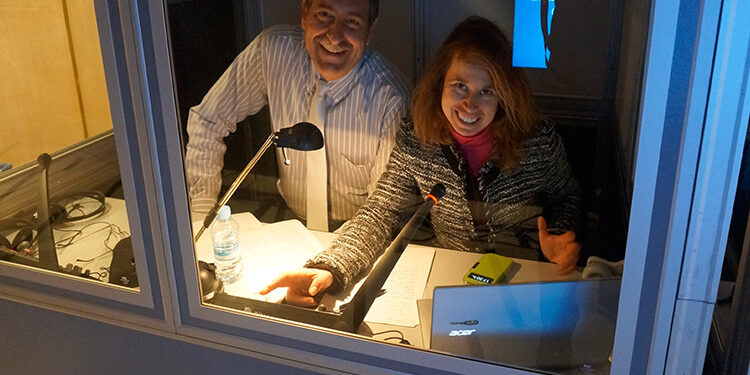The process of interpretation consists of listening to a message, processing it and expressing it in another language.
In simultaneous interpreting, the interpreters listen to the original message through headsets and instantly convert it into another language with only a brief delay of tenths of a second. This process requires absolute concentration, which cannot be maintained for very long. That is why interpreters always work in pairs, taking shifts of 20 to 30 minutes. When not translating, we help our booth-mate find terminology, jot down figures, look up information, etc. The booth allows us to be acoustically isolated from the audience so that the participants are not distracted.
In consecutive, we add a note-taking technique.
Remote interpretation adds a technological twist to everything we have mentioned so far: the management of a simultaneous interpretation platform, the remote communication with our colleague and the technician, etc.




